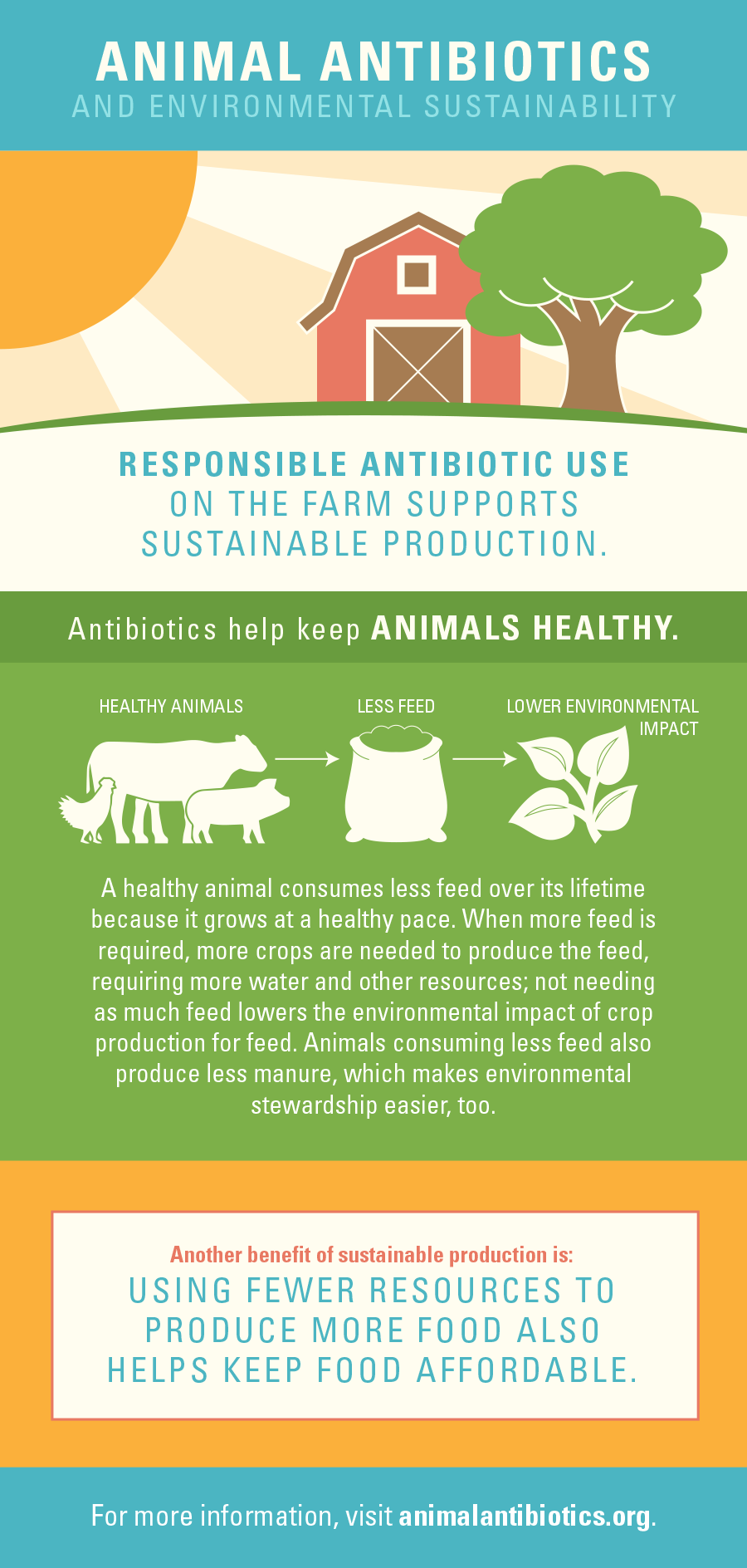Providing high quality animal care is a prime reason farmers use antibiotics, but they also promote food safety and environmental protection. I previously outlined how failure to treat animals, or delays in treatment, could cause unnecessary animal pain and suffering. Another unintended consequence of drastic cutbacks or elimination of antibiotics could be a drain on our natural resources and environmental degradation.
Using antibiotics responsibly keeps animals healthy, and healthy animals are more productive. They do a better job digesting feed, which means animals consume less feed overall. Less feed means less impact on the environment. Animals consuming less feed produce less manure, which makes environmental stewardship easier, too.
Not as much corn and soymeal is needed for animal feed when farm animals are healthy. This allows farmers to produce more food using fewer resources. University of Georgia research shows that that if 25 percent of poultry production in the U.S. eliminated antibiotics, it would require nearly 100,000 more acres of cropland to meet the added nutritional requirements of the animals.
Producing more food using fewer resources has the added benefit of helping keep food affordable. A 2011 Iowa State University study shows raising a pig in an antibiotic-free program costs an additional $11 per pig, something that at least partially has to be passed on to consumers in order to keep farms economically viable. That adds up fast considering more than 100 million hogs are produced in the U.S. annually.
 Animal antibiotics have been used by farmers for decades to make food safer and prevent animal suffering. Using them responsibly also lessens the burden on our planet. Despite these benefits, antibiotic resistance is a serious public health concern shared by the animal health community. That’s why we’re working with the Food and Drug Administration and American Veterinary Medical Association to ensure the responsible use of antibiotics in animals that produce food.
Animal antibiotics have been used by farmers for decades to make food safer and prevent animal suffering. Using them responsibly also lessens the burden on our planet. Despite these benefits, antibiotic resistance is a serious public health concern shared by the animal health community. That’s why we’re working with the Food and Drug Administration and American Veterinary Medical Association to ensure the responsible use of antibiotics in animals that produce food.
Most food producers, like those of us at Phibro, openly acknowledge that animal antibiotics need to be used responsibly to minimize agriculture’s contribution to antibiotic resistance, as they should. At the same time, overly-restricting or eliminating antibiotics from food animal production would raise serious animal welfare, environmental impact and food safety concerns that need to be thoroughly examined, understood and discussed.
I welcome your thoughts and questions. Please feel free to send me an email at AskDrDorman@pahc.com or call me at 844-288-3623. You can also browse our Resource Library to learn more about this important topic.
